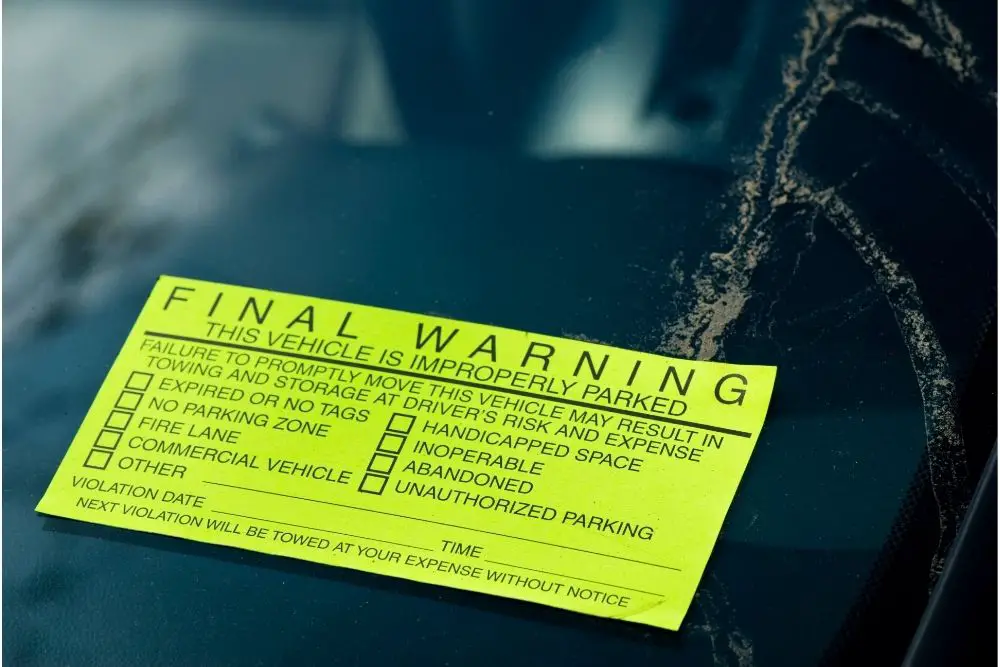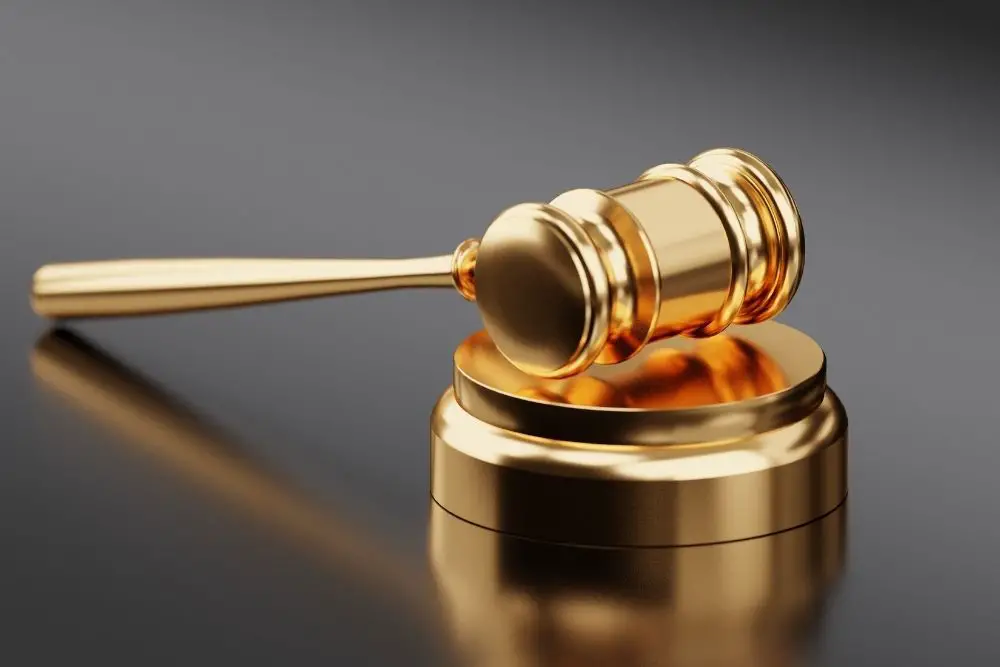Last Updated on May 11, 2022 by Fair Punishment Team
Even if you are the most conscientious, law-abiding citizen, there is a chance that you might experience a run in with the law at some point in your lifetime. It is easy to make mistakes, and it is even easier to get caught. But, if you are usually a law-abiding citizen, you will often find that you will simply receive a warning for the crime that you committed.
While the term ‘warning’ is thrown around a lot in modern-day society, a lot of people do not actually know exactly what a warning is. So what is a warning? And more importantly, how is it going to affect your life going forward? Ultimately, the effect that this has on your life will depend on if a warning goes on your record. So does a warning go on your record? Let’s find out in this guide.
What Is A Warning?
So, before we take a look at whether, or not, a warning goes on your record, let’s first take a look at what a warning is. As you probably know a warning is something that is given by officers of the law, usually to first-time offenders. It is also sometimes known as a caution, and the terms are often used interchangeably with one another. But what is a warning?
Well, there are lots of meanings for a warning, but there are two types of warning that you might associate with going on your record. These are warnings given by either a judge or an officer of the law.
Most commonly, a warning will be given by a law official to someone who has committed a low-level crime, and they are typically associated with driving offenses. So, you might be given a warning for driving slightly over the speed limit, or driving with a faulty tail light.
There are two types of warning that a law enforcement officer could give you. They are a written warning, and a verbal warning. The difference between this is very important as it will influence if the warning goes on your record. So do warnings go on your record? Let’s take a look.

Does A Warning Go On Your Record?
As we have said, there are 2 main types of warnings that you could receive. They are a verbal warning, and a written warning. You might think that the difference between these two is unimportant, but that definitely isn’t the case. In fact, whether you receive a verbal or a written warning will have a massive influence on if it stays on your record.
The key difference between these two types of warnings is in the name. A verbal warning is spoken, so the officer will simply tell you that you are receiving a warning for whatever it is that you have done wrong. But, a written warning will be written down on paper, and then given to you. Based on this, it is likely that you can figure out which type of warning stays on your record, and which doesn’t.
As you likely expect, a verbal warning usually comes with no consequences. As a verbal warning is spoken, not written, there is no paper trail. So, the only people who know that the warning happened is you and the officer that gave it. For this reason, a verbal warning often will not go on your record. But, a written warning is very different. When a written warning is given, there is a paper trail associated with it, and that is why written warnings will typically go on your record.
So, ultimately, whether, or not, a warning goes on your record depends on if the warning you are given is written or verbal.
How Long Does A Written Warning Stay On Your Record?
As we have said, a written warning is added to your record, and that is because there is a paper trail associated with it. This warning will stay on your record going forward. But, it is important to note that a warning is not the same as a citation.
A citation has consequences, but a warning does not. The only consequences of a warning will occur if you commit the crime again in the future, or if you do not correct the issue that caused you to receive the warning in the first place.
As its name suggests, a warning is a warning. Warnings do not come with consequences, instead they simply let you know that consequences will occur if you do not change your behavior. When you receive a warning, you are essentially let off.
If you receive a warning then you are lucky. Even if the warning is written, all that will be left on your record is a note of the warning, and this alone cannot lead to any consequences.
Most of the time, a written warning will be given when there is something wrong with your vehicle. So, you might be given a written warning if your tail light is faulty, or if your tire pressure seems low.
These warnings are usually given with a time limit, so you will have to get the issue resolved within this time, otherwise you will face consequences. But, as long as you get the problem fixed, there will be no need to worry.

Do Verbal Warnings Go On Your Record?
So, written warnings will go on your record without consequence, but what about verbal warnings? Well, as we have said, verbal warnings typically will not be shown on your record, and that is because the warning is spoken verbally. As is often the case, verbal agreements will not be shown on your record, and that is because there is no record that the warning ever occurred.
Unless the exchange is filmed, the only people who will know that the warning occurred will be you and the law enforcement officer. That is why it is unlikely that a verbal warning will go on your record.
However, there is a chance that a verbal warning could go on your record. This might happen if the law officer that you encountered chose to make a written record of the exchange. But, it is rare for this to happen, as most officers will simply give out a written warning, rather than making a verbal one and then making a record of it.
If this does happen, then the same principle applies as a written warning. So, a note of the warning will appear on your record, but it will carry no consequences.
Do You have To Go To Court For A Warning?
As long as the warning that you receive is one for a driving offense, then no, you will not have to go to court for it. In terms of driving offenses, warnings are a lucky escape. While a written warning will be noted on your record, it will not come with any consequences, and that is why you will not have to go to court for it.
As their name suggests, warnings are just warnings, so they do not have a legal consequence. They are simply given to encourage better practices in the future. That is why a warning is the preferable consequence for a driving offense.
However, you could have to go to Court for a driving offense, and that will happen if you receive a citation. When you receive a citation, you will usually have to either go to Court, or pay a fine. A citation is essentially one step up from a warning, and it does come with consequences.
Unfortunately, whether you receive a warning or a citation for a traffic violation is not legally decided. Instead, it is decided by the specific law officer that has caught you. So, you could receive a citation for something that another person might simply receive a warning for.
Things such as your job, your race, and your gender will influence if you are given a warning or a citation, so sometimes it is simply luck of the draw.

Do Warnings Show Up In Background Checks?
But, the most important thing that you probably want to know is whether, or not, a warning will show up in a background check. Most of the time, a written warning will be logged at a local level, by the district where the driving offense occurred. But, unless you receive a citation, it will not show on your driving record.
For that reason, no, warnings do not show up in background checks. The only time that a driving offense will appear on a background check is if you have been given a citation for it, or if you have been charged. But a warning is just a warning, so as long as you do not commit any further offenses (and you get any issues with your vehicle resolved), then it will not show up on a background check.
Summary
In short, whether, or not, a warning goes on your record will depend on the type of warning you receive. Typically, there will be no record of a verbal warning. But, if you receive a written warning a note of this will usually be made on your record. However, no consequences will come as a result of this warning as long as you do not commit the offense again in the future.

